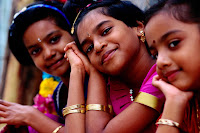Singapore stepped onto the world stage when Sir Thomas Stamford Raffles stepped into the mud in 1819, hell-bent on making the island a bastion of the British Empire. It prospered in its role as a free-trade hub for Southeast Asia, but these early years were marred by bad sanitation, disease, Empire-sponsored opium addiction and piracy. Large-scale immigration of Chinese workers occurred, with some Chinese intermarrying with local Malays to create the Peranakan people and culture.
 The glory days of the empire came to an abrupt end on 15 February 1942 when the Japanese invaded Singapore. For the rest of WWII the Japanese ran the island (renamed Syonan) with brutal will – 140, 000 allied troops were killed or imprisoned at the notorious Changi Prison. Thousands of Chinese were executed at Sentosa and Changi Beach; Malays and Indians were subject to systematic abuse. Although the British were welcomed back to the island after the war, it was clear that the Empire’s days in the region were numbered.
The glory days of the empire came to an abrupt end on 15 February 1942 when the Japanese invaded Singapore. For the rest of WWII the Japanese ran the island (renamed Syonan) with brutal will – 140, 000 allied troops were killed or imprisoned at the notorious Changi Prison. Thousands of Chinese were executed at Sentosa and Changi Beach; Malays and Indians were subject to systematic abuse. Although the British were welcomed back to the island after the war, it was clear that the Empire’s days in the region were numbered.The socialist People’s Action Party (PAP) was founded in 1954 with Lee Kuan Yew, a third-generation Straits-born Chinese and Cambridge-educated lawyer, as its secretary general. The shrewdly political Lee led the PAP to victory in elections held in 1959, becoming the first Singaporean prime minister – a post he held in his iron grip for 31 years. Although Singapore’s situation looked grim when it was booted out of the nascent federation of Malaysia in 1965, Lee set to work making the most of one-party rule, and pushing through an ambitious industrialisation programme for the island that had no natural resources beyond its labour force.
Housing and urban renovation, in particular, have been keys to the PAP’s success – by the mid-1990s the city-state had the world’s highest rate of home ownership. Living out ‘social-engineering dreams’ (as couched in the anti-Western rhetoric of Confucianism) recalled from British textbooks, Singapore’s leaders also sought order and progress in the strict regulation of social behaviour and identity – thus earning its reputation as a fairly uptight corner of the world. Singaporean media is subject to strict government censorship – freedom of speech isn’t something Singaporeans are altogether familiar with.
In 1990 Lee Kuan Yew resigned as prime minister (though he still holds the conspicuous position of Minister Mentor, issuing advice on everything from protocol to diet), to be replaced by Goh Chok Tong, in turn replaced by Lee’s eldest son Lee Hsien Loong in 2004. The government is slowly loosening its paternalistic grip, but it’s not entirely ready to set Singaporeans free from the cage just yet.
Come to Singapore today
Come to Singapore today
singapore. orchard hotel singapore . Singapore news
[12 country blog for good holiday or real discovery]
http://happy-singapore.blogspot.com/
http://joyful-india.blogspot.com/
http://joyful-australia.blogspot.com/
http://joyful-philippine.blogspot.com/
http://joyful-arab.blogspot.com/
http://joyful-pakistan.blogspot.com/
http://joyful-switzerland.blogspot.com/
http://joyful-bali.blogspot.com/
http://joyful-africa.blogspot.com/
http://joyful-malaysia.blogspot.com/
http://joyful-mexico.blogspot.com/
http://our-greenland.blogspot.com/






